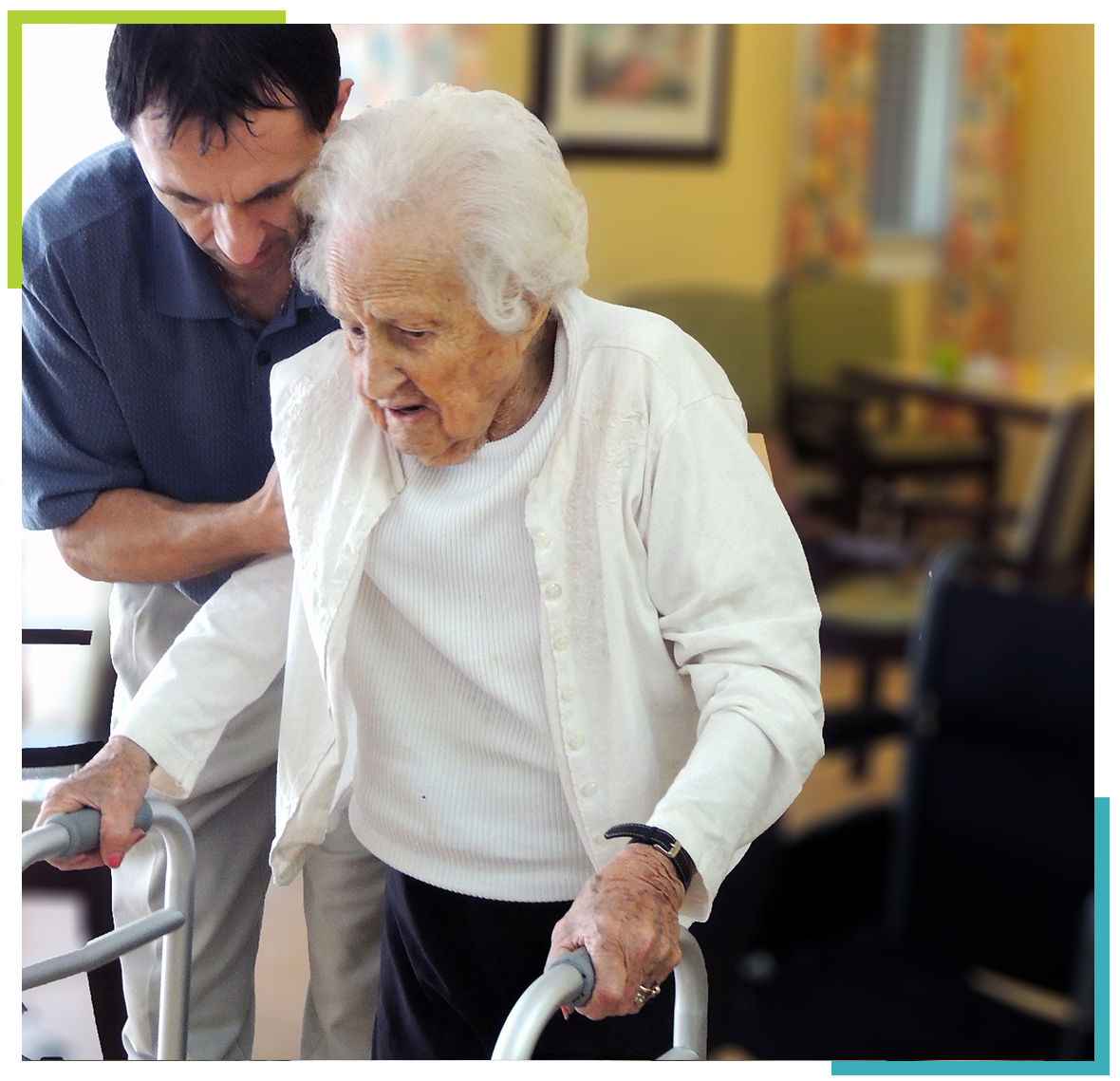Every individual’s experience with dementia is different, and it’s essential to prepare for the difficulties associated with each stage. The cognitive decline that dementia causes can adversely affect relationships, and it can be heartbreaking to watch your family member change as time goes on. Many people feel hopeless as dementia progresses, but spending time with your senior is one of the most effective ways to support them. Let’s talk more about some practical ways to provide dementia support, be emotionally present and continue to have a meaningful relationship.

How to Provide Dementia Support as it Evolves
Early Stage Dementia: This stage is associated with memory lapses and a loss of thinking and reasoning capability. Patients may forget familiar people, names or recent events, and simple daily tasks may become more challenging. As dementia erodes communication ability, the senior may isolate themselves and avoid social situations so as to avoid conversations. Some of the most effective ways you can offer emotional support during this stage include:
- Remind your loved one that they can still experience their life, even if it looks different than anticipated.
- Ask your family member for feedback on the kinds of social activities they would like to participate in together.
- While they may still live on their own during this stage, it’s vital to include them in conversations about how to support them as their needs evolve. Involving them in long-term planning gives them the opportunity to be part of the decision-making process that will affect their care.
- Stay positive and avoid speaking about the uncertain future; instead, concentrate on enjoying the present moment.
Moderate Stage Dementia: Memory, judgment and cognitive ability begin to erode at this stage of dementia. Someone with moderate dementia may experience confusion, unable to determine what day it is or where they were born. Your senior may need assistance with ADLs such as getting dressed, preparing meals or managing hygiene. As dementia progresses, they may behave in unpredictable or unexpected ways, and may begin to wander. At this stage, keeping your loved one safe becomes paramount. You may offer support during this stage by doing the following:
- Actively listen as your your loved one shares their emotions, which may include moodiness, paranoia, anger and confusion.
- Affirm the patient’s fears and concerns rather than downplaying their feelings.
- Help your loved one to navigate the world around them by establishing predictable daily routines.
- Be understanding about the frustration and loss of control your loved one feels when decisions are made on their behalf.
- Allow yourself to feel your own sadness, especially as the relationship changes as dementia progresses. Consider finding a support group for yourself to connect with others who can empathize with your experiences.
Late Stage Dementia: Severe stage dementia can be heartbreaking as your loved one loses key capabilities, such as communicating, walking, smiling, or swallowing. They may no longer recognize family, pets or cherished personal possessions. Continual care will be required at this point, and it is difficult to provide emotional support when you are yourself emotionally and physically drained. The best way to provide support is often to hire professional care or consider memory care. Other tips include:
- Work closely with their caregivers to ensure the support they need.
- Continue to provide social interaction and engaging activities, even if they don’t respond as they used to.
- Encourage smiling and laughter when conversation is too difficult.
- Be 100% present – hold their hand, listen to music or comb their hair to provide comfort.
Choosing a professional and compassionate memory care facility for your senior is one of the best ways you can show your support and love. At A Banyan Residence, we are dedicated to cultivating a safe, comforting and positive place for your loved one to live and thrive.







